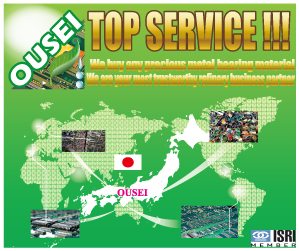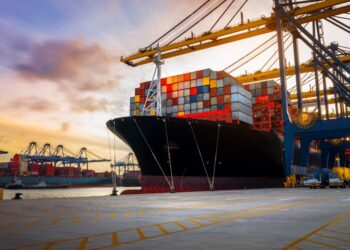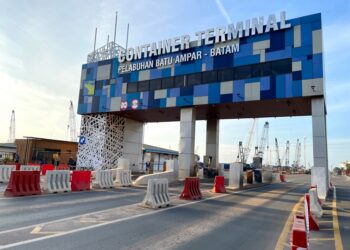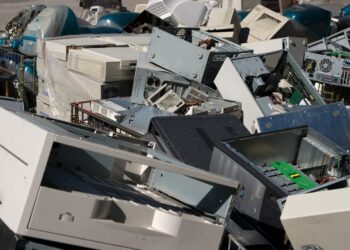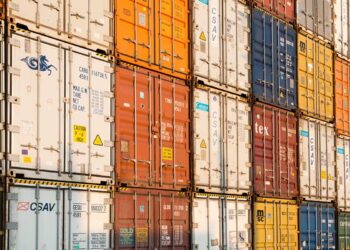China’s import policy changes are forcing U.S. recycling companies to seek adjustments to municipal contracts, stockpile materials and even landfill recyclables.
Chinese import permits have not been renewed since May, slowing and, in some cases, halting shipments of certain recovered materials to the country. Although the language of China’s initial announcement to the World Trade Organization (WTO) describes an official Jan. 1, 2018 implementation date for a ban on imports of certain recovered fiber, plastic and metal grades, the U.S. recycling industry is already feeling the impact in a big way.
Resource Recycling spoke with a handful of industry stakeholders about the ban’s impact to date and found that communities across the U.S. are being affected. For some, it has meant a sudden contract renegotiation. For others, the loss of a crucial downstream market has led to stockpiling or landfilling.
And for some municipalities, it means refocusing diversion efforts to tackle materials that have end users within the U.S. For instance, Sarah Pierpont of the New Mexico Recycling Coalition said there is renewed attention in the state on diverting compost, glass and other materials that are not tied to exports.
“We’re trying to focus on all these items that take up a large volume of the waste and that can be processed locally,” she said.
Contract changes
The Chinese policy developments led a large Southwest recycling company to ask several municipal clients to approve changes to their service contracts. Friedman Recycling in September contacted solid waste authorities in the New Mexico cities of Albuquerque, Las Cruces and Santa Fe, asking the governments to modify their recycling contracts to shield the company from negative financial outcomes.
A letter from the MRF operator’s CEO, David Friedman, noted the developments to date and the uncertainty that remains.
All of the recovered fiber from Friedman Recycling’s Albuquerque MRF goes to China, he wrote. The company sells to Ralison International, a buying agent for Lee and Man Paper Manufacturing, which is the second largest consumer of recovered fiber in China.
Friedman’s agreement with Ralison International guarantees all the fiber generated at the MRF will have an outlet, and that guarantee has been the basis of the MRF’s contract with the municipalities. But in an Aug. 30 letter to Friedman, Ralison said it is no longer able to fulfill its contract obligations to buy mixed paper and old newsprint. Eric Lao, Ralison’s vice president of operations, pointed to the ban announced to the WTO, as well as the current update to China’s GB (Guobiao) standards for imported scrap materials. The country’s revamped standard for waste fiber proposes limiting contamination of non-fiber materials in fiber loads to 0.3 percent, and Lao wrote that Ralison does not think it can meet that limit.
Ralison said it would continue to buy materials at market price for three months but advised Friedman to “make necessary arrangements.”
In light of the loss of the company’s downstream option, Friedman is asking the municipalities to suspend their revenue-sharing agreements. Friedman is also asking that they pay to backhaul and dispose of all residual for the next six months, or until the contract with Ralison returns to normal.
Santa Fe received about $125,000 from the revenue-share agreement during the past year. Solid waste officials have estimated it would cost about $35,000 to backhaul residual for disposal for the next six months.
Pierpont said the ban hasn’t led any programs to halt collection of recyclables; instead companies and programs are focusing on ensuring they receive high-quality material.
“But then, Santa Fe only has a 9 percent residual rate. That’s pretty good for that sized program,” she noted. “So they’re like, ‘We have this great residual rate, what more can we do? We’re giving you clean material.’”
The strict 0.3 percent standard has many experts viewing it as an effective ban, rather than an attainable standard.
“It’s like, tape on cardboard and you’re done,” Pierpont said.
Ripple effects
Friedman Recycling is far from alone in having trouble with its downstream outlets for recyclables.
Madison, Wis. announced last month its drop-off recycling program has stopped accepting mixed rigid plastics due to the ban. Far West Recycling in the Portland, Ore. metro area has stopped accepting film, rigids and all mixed plastics Nos. 1-7, leaving only PET and HDPE bottles as accepted materials. Sonoco Recycling hasn’t sent any mixed paper to China in weeks (see related story). Oregon’s Department of Environmental Quality is facilitating discussions between recycling stakeholders and says the China policies may lead the agency to approve disposal requests for landfill-banned materials “on a large scale” for the first time.
And in California, materials have begun stacking up as facilities struggle to locate buyers. Vahe Manoukian of Plastic Recycling Corporation of California (PRCC), a buyer and seller of recovered PET bottles, described conversations with many large plastics processors who have no outlet for their products. Those processors, in turn, have told MRFs they can’t accept the affected materials, leading some MRFs to stop baling those recyclables.
“We’re seeing MRFs basically not sort this material, just let it go on the line and it’s going to the landfill, which is very sad, but that’s the reality that’s taking place as we speak,” he said. “It’s pretty dire out there.”
PRCC sells most of the PET it handles domestically and has so far not been substantially impacted by China’s actions. But its position in the California recycling industry allows it to observe trends in West Coast materials movements.
On the paper side, Manoukian described MRFs stuck with 50 to 60 container loads of paper they can’t move.
In a related trend, for the last six months certain processors were taking low-grade plastics for a low fee, Manoukian said. They had space and were essentially stockpiling material in hopes of China opening back up as a downstream outlet.
“Now, those facilities are out of room,” he said.
More companies may be faced with the stockpiling decision as China dries up as a downstream destination. Pierpont said New Mexico’s hub-and-spoke model may benefit its processors, because the model allows a greater deal of flexibility for changes compared with larger municipal contracts. Under the hub-and-spoke model, regional facilities often handle lower volumes of material than their large municipal counterparts.
“That flexibility right now is really important for programs,” Pierpont said.
In some cases, companies are looking elsewhere in the global marketplace for a downstream outlet. Experts point to Southeast Asia, India and more as possible replacement markets to absorb some of the market void.
“We’ve … seen material that used to go to China pretty consistently going to other export markets,” said Ellen Martin, vice president of impact and strategic initiatives at Closed Loop Partners. For example, one Closed Loop investment, a new Pensacola, Fla.-based MRF, moved mixed-paper bales from China to India. “So that’s kind of an interesting thing — are we seeing that (exports are) just rebalancing? Or is it really going to change fundamentally how much material gets exported, period?”
Domestic downstreams
Across the board, industry members say they hope the ban leads to increased domestic processing. In some cases that shift is already happening on a low level. Manoukian said PRCC has been able to drive up the quality of B-grade PET it receives from MRFs, primarily by educating them on how to produce a cleaner stream.
“We have worked with multiple MRFs and they have managed to increase their quality to a level where we call it ‘B-plus’ and we’re able to sell it domestically,” Manoukian said. For some MRFs, he added, that may be impossible due to older equipment or particularly contaminated feedstock.
Beyond education, experts anticipate the ban will drive increased domestic investment in recycling infrastructure. Some companies have applied for California state grants to increase domestic processing capacity. Sally Houghton, also of PRCC, pointed to the large expansion in PET processing capacity in California in the past decade, from a couple companies up to eight. A similar processing expansion could develop for other materials, she said.
Martin recalled the timing of the fall 2014 launch of the Closed Loop Fund, noting the fund’s impetus was at least partially tied to fallout from Green Fence, the previous year’s Chinese imports crackdown action. The fund works to drive investment across multiple sectors of the recycling industry, and has funded several projects increasing U.S. processing and end market capacity.
“I think, in the near term, it’s clearly causing anxiety and stress for operators, and we want to make sure their business models can weather the storm,” Martin said. “But I think in the long run this will force some upgrades in infrastructure and get us to the point where we can actually create better quality material, which means we don’t have to ship around garbage.”
